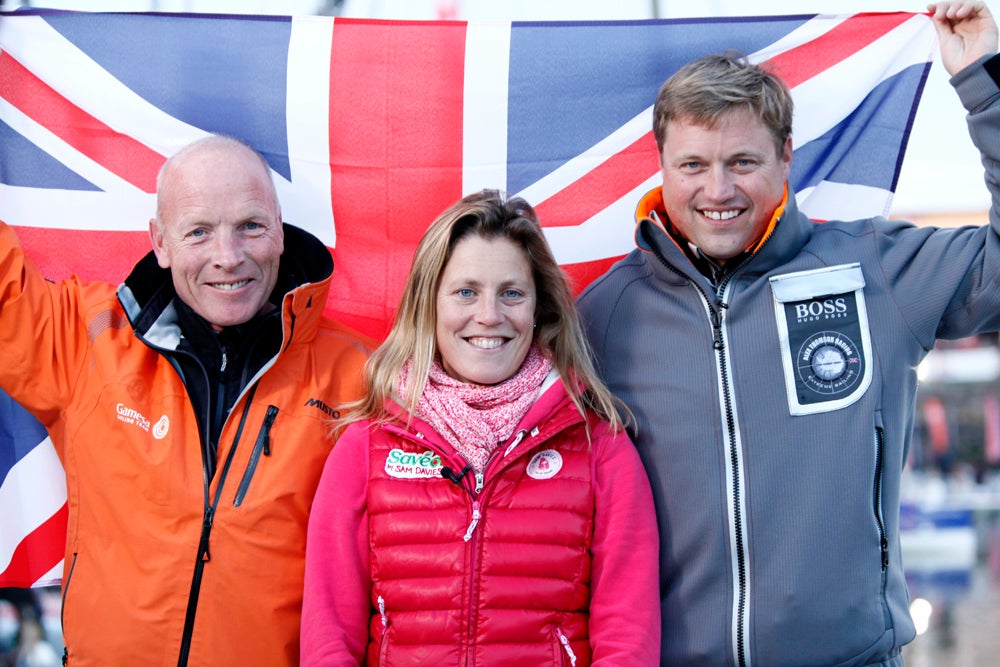Vendée Globe competitors will need luck to survive sailing's Everest

Your support helps us to tell the story
From reproductive rights to climate change to Big Tech, The Independent is on the ground when the story is developing. Whether it's investigating the financials of Elon Musk's pro-Trump PAC or producing our latest documentary, 'The A Word', which shines a light on the American women fighting for reproductive rights, we know how important it is to parse out the facts from the messaging.
At such a critical moment in US history, we need reporters on the ground. Your donation allows us to keep sending journalists to speak to both sides of the story.
The Independent is trusted by Americans across the entire political spectrum. And unlike many other quality news outlets, we choose not to lock Americans out of our reporting and analysis with paywalls. We believe quality journalism should be available to everyone, paid for by those who can afford it.
Your support makes all the difference.“As mayor of Les Sables d’Olonne in 1992, I wondered if I had made a decision which meant that I was sending people to their deaths.”
A sobering reflection and Louis Guédon is still mayor of the little fishing port on the Atlantic coast of France which is hosting for the seventh time the start of the Vendée Globe singlehanded non-stop round the world race.
Death duly marred what must be one of the toughest challenges in the world of sport. Even if the race record is broken that would still require the solo competitors racing 24 hours a day, seven days a week for 12 weeks in the most desolate and dangerous of conditions on earth, a total of 84 days.
Many will take a lot longer than that; many of Saturday’s 20 starters will not, if previous experience is anything to go by, last the course.
But the race has established itself as a punishing pinnacle in the world of ocean racing and as the defining image of the whole of that French region south of Brittany.
Competitor after competitor will say it is a triumph even to make the start line. To finish first or last is a victory for everyone.
In 1992 the town had decided to back the second running of a race put together by Philippe Jeantot, the teak-hard designer of a simple concept; one man, one boat, non-stop, no outside help. The course, too is simple. Down the Atlantic, turn left, circle Antarctic to Cape Horn, turn left, and home. Easy it is not.
Seven of the 13 starters in 1989 had finished. Four retired and two were disqualified because when broken down they accepted help.
Fourteen entered the Guédon-backed second race. Seven finished, five, including Welshman Alan Wynne-Thomas, did not, one was disqualified for stopping to repair his autopilot, and one died, Britain’s Nigel Burgess.
Women joined the fray for the third, with Catherine Chabaud the last of the seven finishers out of 15 starters which saw Britain’s Pete Goss eventually being asked by Jacques Chirac to join the Légoin d’Honneur after rescuing Raphaël Dinelli. But there was no-one to rescue Canada’s Gerry Rouf, the wreckage of whose boat was found on the coast of Chile.
In 2000 there were 24 entries, the most famous of which became Ellen MacArthur, whose second-place finish eclipsed in the UK the amazing win, the first of two, by Michel Desjoyeaux. Three were disqualified, six did not finish.
Sixty-five per cent,of the 2004 starters finished, Mike Golding holding onto third despite losing his keel 50 miles from the finish. Australia’s Nick Moloney had suffered the same fate earlier, both women finished, and Britain’s Alex Thomson suffered his first retirement.
Last time Desjoyeaux put in a display of power which saw him come back from early damage and a restart 41 hours after returning for repairs and go on to win.
The fleet had taken a hammering on the first night crossing the Bay of Biscay. Only 40 per cent. finished and the list of those that did not would have any race organiser bursting with pride at the quality of the line-up.
Guédon’s little town, where he has now been mayor for 42 years, 20 of them also in parliament, pays only 20 per cent of the €9m. cost, 40 per cent. being picked up by the regional government and 40 per cent. by food producer and sponsor Sodebo.
He is not any the less nervous. All 20 said on Wednesday they hoped the survival rate would be much higher this time. And so say all of us. At least the trio of British competitors, Golding, Thomson and the remarkable Sam Davies, fourth last time, with Dee Caffari sixth, should have the know-how to make it all the way.
Even so they will need one extra ingredient to add to their guile, resolve and physical fitness. Luck.
Join our commenting forum
Join thought-provoking conversations, follow other Independent readers and see their replies
Comments